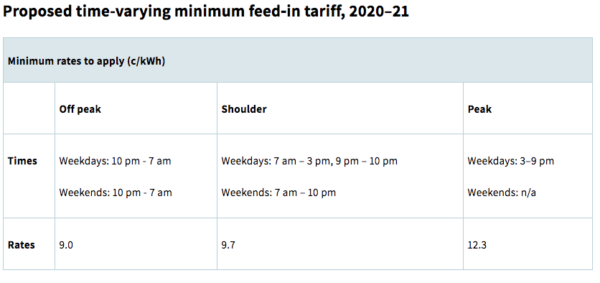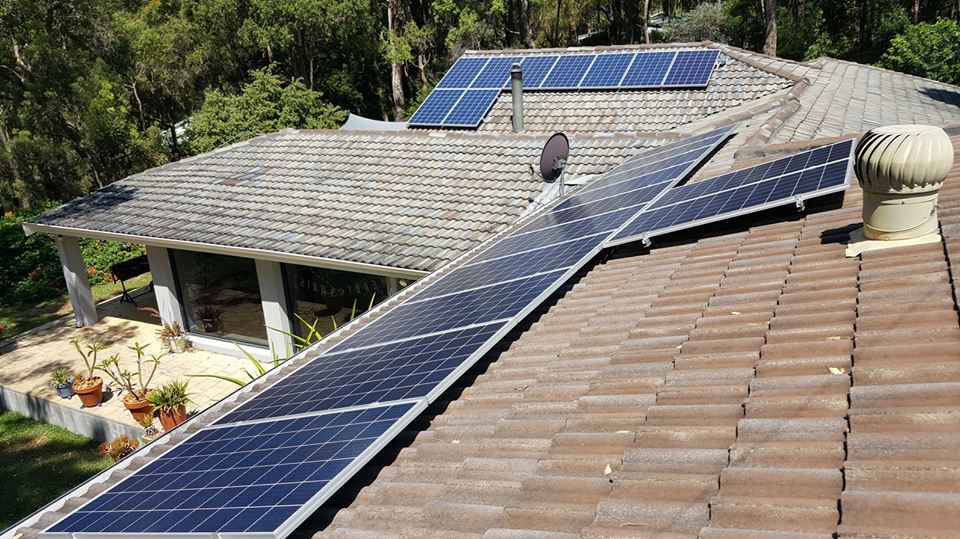Victoria’s Essential Services Commission (ESC) has released a draft decision, which proposes to set two minimum feed-in tariff (FiT) rates, with retailers required to offer both: a single rate minimum FiT and a time-varying minimum FiT. While it would offer the ability to PV owners to choose which minimum FiT best suits their circumstances, the economic regulator has also proposed cuts to both sets of rates from 1 July 2020.
Under the draft decision, the ESC has proposed a single rate FiT of a minimum 10c/kWh, or a time-varying FiT ranging from 9c/kWh to 12.3c/kWh, depending on the time of day. Both mark a reduction on the FiT rates of 2019-2020, which offered a single rate minimum price of 12c/kWh and between 9.9c/kWh and 14.6c/kWh in the time-varying scheme.

The Commission said the reduction in the tariff rates was made based on the futures market for wholesale prices taking a 12-month average instead of the 40-day average of future wholesale electricity prices used in 2019–20. The rates will be further updated in the lead up to the final decision in February to reflect wholesale electricity prices in futures markets at that time.
According to the ESC, under the technology-neutral time-weighting approach, solar owners under a mandated time‑varying FiT are likely to be paid more than the true value of their exports to the grid.”Given the high share of rooftop solar in Victoria and our draft decision to mandate a time-varying feed-in tariff, we propose that the wholesale electricity price used for setting the time-varying tariff should also be solar-weighted,” the ESC said.
Another new aspect is the ESC’s proposal to make time-varying FiT mandatory from 2020-21. This feed-in tariff varies with the time of day to better reflect the wholesale cost of electricity at the time it is sold into the grid. However, this FiT system has been only an optional offering after Victoria became the first state to introduce it in July last year.
However, energy retailers have been eager to introduce the time-varying FiT making Energy Australia currently the only retailer to offer it. However, under the draft decision, customers, irrespective of which retailer they are contracted to, will be the ones to decide which minimum FiT best suits them.
“With a 46 per cent [according to Solar Homes Victoria] increase in solar installations and a rapid uptake of batteries, we need a scheme that supports customer choice,” Commission chairperson Kate Symons said. “This draft proposes a step forward in creating choice for Victorian customers by requiring retailers to offer time-varying feed-in tariffs and we want to hear from both households and retailers on what this means for them.”
The ESC has invited feedback from all interested parties, including consumers, energy licence holders and other stakeholders on the draft decision until January 17. The final decision will be made by February 28.
This content is protected by copyright and may not be reused. If you want to cooperate with us and would like to reuse some of our content, please contact: editors@pv-magazine.com.









By submitting this form you agree to pv magazine using your data for the purposes of publishing your comment.
Your personal data will only be disclosed or otherwise transmitted to third parties for the purposes of spam filtering or if this is necessary for technical maintenance of the website. Any other transfer to third parties will not take place unless this is justified on the basis of applicable data protection regulations or if pv magazine is legally obliged to do so.
You may revoke this consent at any time with effect for the future, in which case your personal data will be deleted immediately. Otherwise, your data will be deleted if pv magazine has processed your request or the purpose of data storage is fulfilled.
Further information on data privacy can be found in our Data Protection Policy.